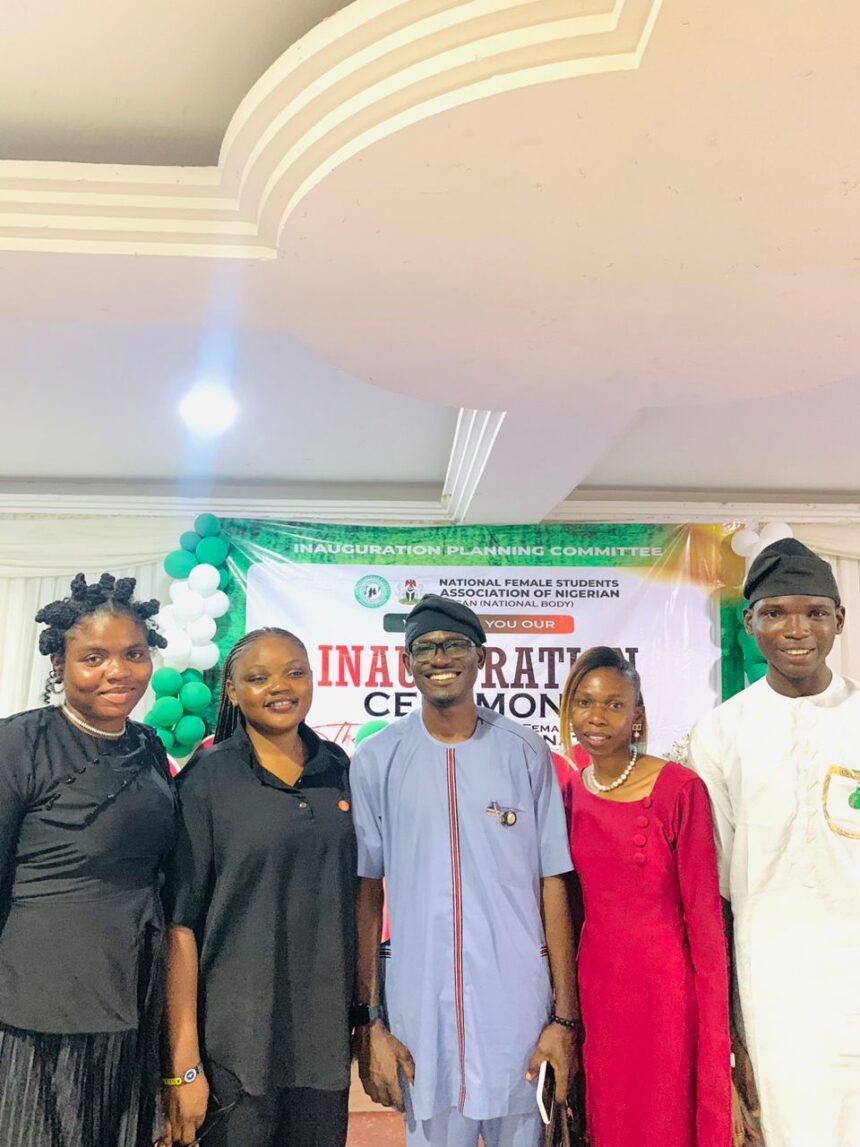As conversations around gender inclusion and youth participation in national development continue to grow, the Association for Students Social Welfare (ASSW) has reaffirmed its commitment to supporting young female leaders across Nigerian tertiary institutions.
The organization made this known while congratulating the newly inaugurated National Executives of the National Female Students Association of Nigeria (NFSAN), describing the association’s 10th anniversary as a milestone in the advancement of female student leadership and advocacy in the country.
In a statement by the Founder of ASSW and Chairman of the Students Chamber of Commerce in Nigeria, Ambassador Victor Adetolaju, he noted that NFSAN has evolved into one of the most influential female student bodies in Nigeria, playing an important role in promoting gender equity, campus safety, leadership participation, and economic empowerment.
Adetolaju said NFSAN’s decade-long journey reflects the resilience and courage of young Nigerian women who continue to break barriers in academic leadership and social advocacy. “NFSAN has not only represented the voices of female students nationwide but has also contributed meaningfully to national dialogue on education, inclusion, and empowerment,” he stated.
He explained that ASSW, known for championing student welfare and capacity-building programs across the country, plans to deepen collaboration with NFSAN in areas such as leadership training, mentorship, mental health support, student enterprise development, and access to economic opportunities.
For more than eight years, ASSW has implemented grassroots projects across Nigerian higher institutions, including welfare intervention programs, campus mental health response initiatives, female entrepreneurship challenges, student social protection advocacy, and leadership and policy training.
“Our focus remains on improving the welfare and leadership capacity of Nigerian students. We consider NFSAN a vital partner in achieving these goals, especially for young women who must be empowered, confident, and economically independent,” Adetolaju said.
He further emphasized that national growth depends on sustained investment in young people—particularly young women who are central to economic and social transformation. He urged the government, civil society organizations, development partners, and private sector actors to collaborate with credible student groups like NFSAN to expand empowerment programs across campuses.
“NFSAN has shown discipline, structure, and purpose over the years. The new leadership must build on this foundation through unity, accountability, and innovation,” he added.
Adetolaju also said ASSW would provide technical support, policy collaboration, and institutional partnership to advance NFSAN’s goals, while the Students Chamber of Commerce would create new economic opportunities for female students in sectors such as business, technology, agriculture, entertainment, and social enterprise.
He congratulated the new NFSAN executives and encouraged them to uphold the values of integrity, inclusion, and transformational leadership in their tenure, noting that their role would be crucial in shaping the next decade of female student participation in national development.





